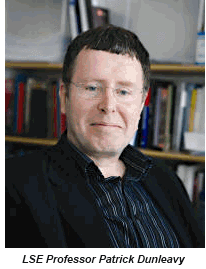|
|
|
|
|
|
|
News & Views item - April 2011 |
![]() LSE Professor Travels Half the World to Tell Us the Emperor Has No Clothes.
(April 27, 2011)
LSE Professor Travels Half the World to Tell Us the Emperor Has No Clothes.
(April 27, 2011)
According to The Australian's Julie Hare, Patrick Dunleavy, a professor
of political science and public policy at the London School of Economics and
Political Science informed an ANU seminar last week that the Excellence in Research for Australia [ERA]
program, like Britain's research exercises before it, was "predigital in
nature", rendering them clumsy and bureaucratic.
ANU seminar last week that the Excellence in Research for Australia [ERA]
program, like Britain's research exercises before it, was "predigital in
nature", rendering them clumsy and bureaucratic.
In his opinion "eyeballing 200,000 outputs" or attributing proxy measures via journal articles had failed to capture the real value of research, and this was particularly true for the social sciences.
In place of the ERA let Google do the work for you, i..e. use University of Melbourne' Professor of International Management Anne-Wil Harzing's program "Publish or Perish", a software program that retrieves and analyses academic citations. It uses Google Scholar to obtain the raw citations, then analyses these and presents the following statistics:
Total number of papers
Total number of citations
Average number of citations per paper
Average number of citations per author
Average number of papers per author
Average number of citations per year
Hirsch's h-index and related parameters
Egghe's g-index
The contemporary h-index
The age-weighted citation rate
Two variations of individual h-indices
An analysis of the number of authors per paper.
The results are available on-screen and can also be copied to the Windows clipboard (for pasting into other applications) or saved to a variety of output formats (for future reference or further analysis).
In Professor Dunleavy's view: "All that universities would need to do would be to clean up the report, submit their academics' Google Scholar profiles to government and you would have a national academic census."
Apart from the obvious conclusion that the approach would save considerable time, effort and expense compared to the ERA, it would suffer from the same retrospective view as that of the ERA. Nevertheless that analyses could easily be supplied by researchers as part of their grant applications for peer review by the ARC or the NHMRC.
On the other hand if such analyses were used by reviewers to replace critical, knowledgeable evaluation of grant applications it would by counterproductive and certainly detrimental to support for the younger researchers.
There is no indication in Ms Hare's report that Professor Dunleavy addressed the matter of improving the processes of peer review, increasing the emphasis on providing research funding to the investigators, fully funding oncosts, and reducing the manipulative powers of university administrators in dispensing research funding.